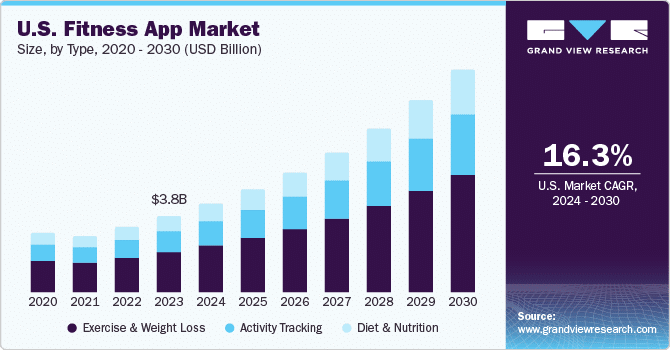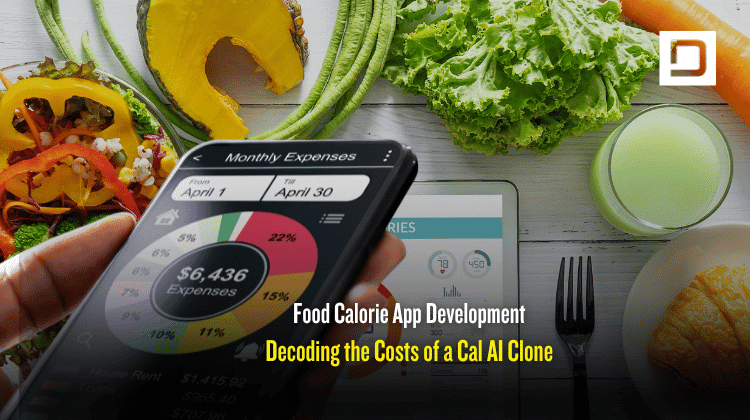How Much Does It Cost to Develop an App Like Cal AI – Food Calorie Tracker?
In an era where health consciousness is at its peak, mobile applications that promote fitness and well-being are booming. One such app making waves in the health tech industry is Cal AI – Food Calorie Tracker. This AI-powered app allows users to track their calorie intake with ease by leveraging artificial intelligence to analyze food items and offer precise nutritional insights.
Launched in May, Cal AI has generated over 5 million downloads in eight months, Yadegari says. Better still, he tells TechCrunch that the customer retention rate is over 30% and that the app generated over $2 million in revenue last month. These figures demonstrate the immense potential of AI-powered calorie tracking applications.
If you’re planning to develop a similar app, you must understand the features, market demand, AI capabilities, and, most importantly, the cost of development. In this blog, we will break down the cost factors involved in developing an app like Cal AI and explore why such apps are thriving in today’s market.
The Market Need for AI-Powered Calorie Tracking Apps
With increasing health awareness, fitness and nutrition apps have become essential tools for people looking to manage their weight, maintain a balanced diet, and stay fit. The global fitness app market was valued at $4.4 billion in 2022 and is expected to reach $30 billion by 2030, growing at a CAGR of 27.8%. The demand is driven by:

- Rising Obesity Rates: People are actively looking for solutions to manage weight effectively.
- Increased Focus on Preventive Healthcare: More individuals prefer monitoring their nutrition rather than relying on medications.
- Technological Advancements: AI, machine learning, and image recognition make tracking food intake seamless and accurate.
- Convenience & Accuracy: Traditional calorie tracking is cumbersome. AI-based apps simplify the process, ensuring users get real-time and precise calorie data.
Given these trends, developing an AI-powered calorie tracking app is a lucrative business opportunity with vast potential for growth and profitability.
Must-Have Features in a Calorie Tracking App
To develop a successful app like Cal AI, certain features must be integrated to enhance user experience and functionality:
1. User Profile & Goal Setting
- Users should be able to create accounts and set fitness goals (weight loss, weight gain, maintenance, etc.).
- Customization based on age, gender, weight, height, and activity level.
2. Food Logging & Database
- A comprehensive food database with nutritional information.
- Barcode scanner to scan food labels for automatic calorie logging.
- Manual food entry option with calorie estimates.
3. AI-Powered Food Recognition
- Image recognition technology to identify food items and calculate calories.
- AI-based portion estimation using computer vision.
4. Macronutrient & Micronutrient Tracking
- Breakdown of macronutrients (carbohydrates, proteins, fats).
- Micronutrient insights (vitamins, minerals, fiber, etc.).
5. Meal Planning & Suggestions
- AI-based meal recommendations based on dietary goals.
- Custom diet plans (Keto, Vegan, Paleo, etc.).
6. Integration with Wearable Devices
- Compatibility with Fitbit, Apple Watch, Google Fit, etc.
- Automatic calorie adjustments based on physical activity.
7. Community & Social Features
- Group challenges, leaderboards, and social sharing.
- Integration with forums for nutrition discussions.
8. Data Analytics & Reports
- Weekly and monthly progress tracking.
- AI-generated insights to improve eating habits.
9. Push Notifications & Reminders
- Meal reminders and hydration alerts.
- Motivational messages and progress updates.
10. Subscription & Monetization
- Freemium model with premium features.
- In-app purchases for meal plans and personalized coaching.
AI-Enabled Features That Enhance Calorie Tracking Apps
Artificial Intelligence is the game-changer in modern calorie-tracking apps. Here’s how AI transforms the user experience:
1. AI-Powered Food Recognition
Instead of manually entering food details, AI image recognition allows users to take a photo of their meal, and the system automatically detects the food items and estimates calories.
2. Machine Learning for Personalized Recommendations
AI learns from user behavior to provide customized meal plans, portion recommendations, and nutrition tips based on eating patterns.
3. Smart Voice Assistants
Voice-based logging allows users to track their meals hands-free. AI-powered assistants like Google Assistant or Siri can integrate with the app to log food intake.
4. Automated Nutrient Deficiency Alerts
AI analyzes a user’s eating habits and suggests dietary changes if there is a lack of essential nutrients in their diet.
5. Predictive Analytics
By analyzing past data, AI can predict future weight trends and suggest preventive actions to meet fitness goals.
6. Chatbots for Instant Assistance
AI-powered chatbots answer users’ questions about calories, food recommendations, or nutrition plans in real-time.
Success of AI-Powered Calorie Tracking Apps
Apps like Cal AI, MyFitnessPal, and Yazio have set benchmarks in the industry. Their success is due to:
1. High User Engagement & Retention
Cal AI boasts a 30%+ retention rate, indicating that users find the app valuable and continue using it.
2. Monetization Strategies That Work
The app has already generated $2 million in monthly revenue, thanks to premium features and in-app purchases.
3. Virality & Word-of-Mouth Growth
With 5 million downloads in 8 months, AI-powered apps have proven their ability to grow organically due to user satisfaction and referrals.
4. Continuous Innovation & AI Upgrades
Frequent updates and AI-driven enhancements keep the app relevant, engaging, and ahead of competitors.
Cost to Develop an AI-Powered Calorie Tracking App
The development cost of an app like Cal AI depends on various factors, including features, technology stack, development team, and complexity. Here’s a breakdown:
1. App Development Cost Based on Features
- Basic App: $25,000 – $50,000
- Intermediate App with AI & Image Recognition: $50,000 – $80,000
- Advanced App with AI, Machine Learning & Wearable Integration: $100,000 – $150,000+
2. Breakdown of Costs
| Component | Estimated Cost |
|---|---|
| UI/UX Design | $5,000 – $10,000 |
| Backend Development | $15,000 – $30,000 |
| AI Features (Image Recognition, ML) | $30,000 – $50,000 |
| App Development (iOS & Android) | $25,000 – $60,000 |
| API Integration (Wearables, Payment, etc.) | $10,000 – $20,000 |
| Testing & Deployment | $5,000 – $15,000 |
3. Timeline for Development
- Basic MVP: 3-6 months
- Feature-Rich AI-Powered App: 6-12 months
Final Conclusion
Developing an AI-powered calorie-tracking app like Cal AI is a promising investment. With the increasing focus on health, AI-driven personalization, and seamless tracking, such applications have a huge market potential. The cost of development varies based on features and AI capabilities, but with proper planning, investment, and marketing strategies, a calorie-tracking app can be a highly profitable venture.

If you’re looking to develop a custom AI-powered nutrition tracking app, Depex Technologies has the expertise to bring your idea to life. Contact us today to get started on your journey to building the next big health-tech app.






